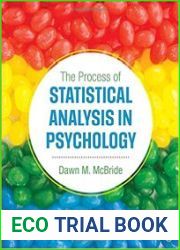
BOOKS - The Psychology of Fake News: Accepting, Sharing, and Correcting Misinformatio...

The Psychology of Fake News: Accepting, Sharing, and Correcting Misinformation
Author: Rainer Greifeneder
Year: August 13, 2020
Format: PDF
File size: PDF 7.9 MB
Language: English

Year: August 13, 2020
Format: PDF
File size: PDF 7.9 MB
Language: English

The Psychology of Fake News: Accepting, Sharing, and Correcting Misinformation In today's digital age, misinformation and disinformation have become rampant, spreading like wildfire through social media platforms, news outlets, and other forms of communication. The phenomenon of "fake news" has taken center stage in public discourse, with far-reaching implications for politics, health, education, and science. This book brings together leading experts from various fields within psychology and related areas to explore the complex factors that contribute to the acceptance and sharing of misinformation, as well as strategies for correcting it. Understanding the Psychology of Fake News At its core, fake news is a psychological phenomenon that arises from the interaction between individuals, technology, and societal factors. This volume examines the psychological processes that influence our perception and transmission of information, including cognitive biases, emotions, and social norms. It delves into the role of online social networks in shaping our beliefs and behaviors, and how these networks have fundamentally changed the way we consume and transmit information. Accepting and Sharing Misinformation The book investigates what drives people to accept and share false information, including factors such as confirmation bias, motivated reasoning, and the desire for social validation.
Психология фейковых новостей: принятие, обмен и исправление дезинформации В современную цифровую эпоху дезинформация и дезинформация стали безудержными, распространяясь как лесной пожар через платформы социальных сетей, новостные агентства и другие формы коммуникации. Феномен «фейковых новостей» занял центральное место в общественном дискурсе, что имеет далеко идущие последствия для политики, здравоохранения, образования и науки. Эта книга объединяет ведущих экспертов из различных областей психологии и смежных областей для изучения сложных факторов, которые способствуют принятию и обмену дезинформацией, а также стратегий ее исправления. Понимание психологии фейковых новостей По своей сути фейковые новости - это психологический феномен, который возникает в результате взаимодействия между людьми, технологиями и социальными факторами. В этом томе рассматриваются психологические процессы, которые влияют на наше восприятие и передачу информации, включая когнитивные предубеждения, эмоции и социальные нормы. Он углубляется в роль социальных сетей в формировании наших убеждений и поведения, а также в то, как эти сети коренным образом изменили способ потребления и передачи информации. Принятие и обмен дезинформацией В книге исследуется, что побуждает людей принимать и делиться ложной информацией, включая такие факторы, как предвзятость подтверждения, мотивированные рассуждения и стремление к социальной проверке.
Psychologie des fake news : accepter, partager et corriger la désinformation À l'ère numérique moderne, la désinformation et la désinformation sont devenues effrénées, se propageant comme un feu de forêt à travers les plateformes de médias sociaux, les agences de presse et d'autres formes de communication. phénomène des « fake news » a pris une place centrale dans le discours public, ce qui a des conséquences considérables sur la politique, la santé, l'éducation et la science. Ce livre réunit des experts éminents de divers domaines de la psychologie et des domaines connexes pour étudier les facteurs complexes qui favorisent l'acceptation et le partage de la désinformation, ainsi que les stratégies pour y remédier. Comprendre la psychologie des fake news En soi, les fake news sont un phénomène psychologique qui résulte de l'interaction entre les personnes, la technologie et les facteurs sociaux. Ce volume examine les processus psychologiques qui influencent notre perception et la transmission de l'information, y compris les préjugés cognitifs, les émotions et les normes sociales. Il explore le rôle des médias sociaux dans la formation de nos croyances et de nos comportements, ainsi que la façon dont ces réseaux ont fondamentalement changé la façon dont l'information est consommée et transmise. L'acceptation et le partage de la désinformation livre explore ce qui encourage les gens à accepter et à partager de fausses informations, y compris des facteurs tels que le biais de confirmation, le raisonnement motivé et le désir de vérification sociale.
Psicología de las noticias falsas: aceptación, intercambio y corrección de la desinformación En la era digital moderna, la desinformación y la desinformación se han vuelto desenfrenadas, propagándose como un incendio forestal a través de plataformas de redes sociales, agencias de noticias y otras formas de comunicación. fenómeno de las «noticias falsas» ha ocupado un lugar central en el discurso público, con consecuencias de largo alcance para la política, la salud, la educación y la ciencia. Este libro reúne a destacados expertos de diversos campos de la psicología y campos relacionados para estudiar los complejos factores que contribuyen a la aceptación e intercambio de la desinformación, así como las estrategias para corregirla. Entender la psicología de las noticias falsas En su esencia, las noticias falsas son un fenómeno psicológico que surge de la interacción entre las personas, la tecnología y los factores sociales. Este volumen aborda los procesos psicológicos que influyen en nuestra percepción y transmisión de información, incluidos los prejuicios cognitivos, las emociones y las normas sociales. Se profundiza en el papel de las redes sociales en la formación de nuestras creencias y comportamientos, así como en cómo estas redes han cambiado radicalmente la forma de consumir y transmitir información. Aceptación e intercambio de desinformación libro explora qué anima a las personas a aceptar y compartir información falsa, incluyendo factores como el sesgo de confirmación, razonamiento motivado y el deseo de verificación social.
Psicologia de notícias falsas: aceitação, troca e correção de desinformação Na era digital atual, a desinformação e desinformação tornaram-se desenfreados, espalhando-se como um incêndio florestal através de plataformas de redes sociais, agências de notícias e outras formas de comunicação. O fenômeno das «notícias falsas» ocupou um lugar central no discurso público, o que tem consequências de longo alcance para a política, a saúde, a educação e a ciência. Este livro reúne especialistas líderes de várias áreas de psicologia e áreas adjacentes para estudar os fatores complexos que contribuem para a aceitação e troca de desinformação e estratégias para corrigi-la. Compreender a psicologia das notícias falsas As notícias falsas são um fenômeno psicológico que resulta da interação entre pessoas, tecnologia e fatores sociais. Este volume aborda processos psicológicos que afetam a nossa percepção e transmissão de informação, incluindo preconceitos cognitivos, emoções e normas sociais. Ele está se aprofundando no papel das redes sociais na formulação de nossas crenças e comportamentos, e na forma como estas redes mudaram radicalmente a forma como a informação é consumida e transmitida. Aceitação e compartilhamento de desinformação O livro investiga o que encoraja as pessoas a aceitar e compartilhar informações falsas, incluindo fatores como o preconceito de confirmação, o raciocínio motivado e o desejo de verificação social.
La psicologia delle notizie false: accettazione, scambio e correzione della disinformazione Nell'era digitale moderna, la disinformazione e la disinformazione sono diventate incessanti, diffondendosi come un incendio boschivo attraverso piattaforme di social media, agenzie di stampa e altre forme di comunicazione. Il fenomeno delle «fake news» è stato al centro del discorso pubblico, con conseguenze di grande portata per la politica, la sanità, l'istruzione e la scienza. Questo libro riunisce esperti di primo piano provenienti da diverse aree psicologiche e correlate per studiare i fattori complessi che promuovono l'accettazione e la condivisione della disinformazione e le strategie di correzione. Capire la psicologia delle notizie false notizie false sono un fenomeno psicologico che deriva dall'interazione tra le persone, la tecnologia e i fattori sociali. Questo volume affronta i processi psicologici che influenzano la nostra percezione e la trasmissione delle informazioni, inclusi i pregiudizi cognitivi, le emozioni e le normative sociali. sta approfondendo nel ruolo dei social media nella formazione delle nostre convinzioni e comportamenti e nel modo in cui queste reti hanno profondamente modificato il modo in cui consumiamo e trasmettiamo le informazioni. Accettazione e scambio di disinformazione Il libro induce le persone ad accettare e condividere informazioni false, inclusi fattori quali il pregiudizio di conferma, il ragionamento motivato e la ricerca di una verifica sociale.
Psychologie der Fake News: Desinformation akzeptieren, teilen und korrigieren Im heutigen digitalen Zeitalter sind Desinformation und Desinformation grassierend geworden und verbreiten sich wie ein Lauffeuer über Social-Media-Plattformen, Nachrichtenagenturen und andere Kommunikationsformen. Das Phänomen „Fake News“ hat einen zentralen Platz im öffentlichen Diskurs eingenommen, der weitreichende Folgen für Politik, Gesundheit, Bildung und Wissenschaft hat. Dieses Buch bringt führende Experten aus verschiedenen Bereichen der Psychologie und verwandten Bereichen zusammen, um die komplexen Faktoren zu untersuchen, die die Akzeptanz und den Austausch von Fehlinformationen sowie Strategien zur Korrektur fördern. Die Psychologie von Fake News verstehen Im Kern sind Fake News ein psychologisches Phänomen, das sich aus der Interaktion zwischen Menschen, Technologie und sozialen Faktoren ergibt. Dieser Band untersucht psychologische Prozesse, die unsere Wahrnehmung und Kommunikation von Informationen beeinflussen, einschließlich kognitiver Vorurteile, Emotionen und sozialer Normen. Es befasst sich mit der Rolle sozialer Medien bei der Gestaltung unserer Überzeugungen und Verhaltensweisen und wie diese Netzwerke die Art und Weise, wie Informationen konsumiert und kommuniziert werden, grundlegend verändert haben. Akzeptanz und Austausch von Fehlinformationen Das Buch untersucht, was Menschen dazu ermutigt, falsche Informationen zu akzeptieren und zu teilen, einschließlich Faktoren wie Bestätigungsverzerrung, motivierte Argumentation und das Streben nach sozialer Überprüfung.
Fałszywe wiadomości Psychologia: Akceptacja, dzielenie się i korygowanie błędnych informacji We współczesnej erze cyfrowej, dezinformacja i dezinformacja stała się szalona, rozprzestrzeniając się jak pożar przez platformy mediów społecznościowych, punkty informacyjne i inne formy komunikacji. Zjawisko „fałszywych wiadomości” zajęło centralne miejsce w dyskursie publicznym, z dalekosiężnymi konsekwencjami dla polityki, zdrowia, edukacji i nauki. Książka ta skupia czołowych ekspertów z różnych dziedzin psychologii i powiązanych dziedzin, aby zbadać złożone czynniki, które przyczyniają się do akceptacji i dzielenia się dezinformacją, a także strategie jej korygowania. Zrozumienie psychologii fałszywych wiadomości U podstaw fałszywych wiadomości leży zjawisko psychologiczne wynikające z interakcji między ludźmi, technologią i czynnikami społecznymi. Objętość ta bada procesy psychologiczne, które wpływają na nasze postrzeganie i przekazywanie informacji, w tym stronniczości poznawcze, emocje i normy społeczne. Zagłębia się w rolę mediów społecznościowych w kształtowaniu naszych przekonań i zachowań oraz w sposób, w jaki sieci te zasadniczo zmieniły sposób, w jaki konsumujemy i komunikujemy informacje. Akceptacja i dzielenie się dezinformacją Książka bada, co motywuje ludzi do przyjmowania i dzielenia się fałszywymi informacjami, w tym czynnikami takimi jak stronniczość potwierdzająca, motywowane rozumowanie i pragnienie weryfikacji społecznej.
פסיכולוגיית חדשות מזויפות: קבלת, שיתוף ותיקון מידע מוטעה בעידן הדיגיטלי המודרני, מידע מוטעה ודיסאינפורמציה התופעה של ”חדשות מזויפות” עלתה שלב בשיח הציבורי, עם השלכות מרחיקות לכת על פוליטיקה, בריאות, חינוך ומדע. ספר זה מקבץ מומחים מובילים מתחומים שונים של פסיכולוגיה ותחומים קשורים כדי לבחון את הגורמים המורכבים התורמים לקבלה ולשיתוף של מידע מוטעה, כמו גם אסטרטגיות לתיקונו. הבנת הפסיכולוגיה של חדשות מזויפות בליבה, חדשות מזויפות היא תופעה פסיכולוגית הנובעת מאינטראקציות בין אנשים, טכנולוגיה וגורמים חברתיים. כרך זה בוחן את התהליכים הפסיכולוגיים המשפיעים על תפיסתנו ועל העברת המידע, כולל הטיות קוגניטיביות, רגשות ונורמות חברתיות. הוא מתעמק בתפקידה של המדיה החברתית בעיצוב האמונות וההתנהגויות שלנו, ואיך הרשתות האלה שינו באופן מהותי את הדרך בה אנו צורכים ומתקשרים מידע. הספר מקבל ומשתף מידע מוטעה (אנג ") בוחן מה מניע אנשים לקבל ולחלוק מידע כוזב, לרבות גורמים כגון הטיית אישור, נימוקים חדשניים ורצון לאימות חברתי.''
Sahte Haber Psikolojisi: Yanlış Bilgiyi Kabul Etmek, Paylaşmak ve Düzeltmek Modern dijital çağda, sosyal medya platformları, haber kaynakları ve diğer iletişim biçimleri aracılığıyla orman yangını gibi yayılan yanlış bilgi ve dezenformasyon yaygınlaştı. "Sahte haberler" olgusu, siyaset, sağlık, eğitim ve bilim için geniş kapsamlı etkileri olan kamusal söylemde merkez sahneye çıktı. Bu kitap, yanlış bilginin kabul edilmesine ve paylaşılmasına katkıda bulunan karmaşık faktörleri ve onu düzeltme stratejilerini incelemek için çeşitli psikoloji alanlarından ve ilgili alanlardan önde gelen uzmanları bir araya getirmektedir. Özünde, sahte haberler insanlar, teknoloji ve sosyal faktörler arasındaki etkileşimlerden kaynaklanan psikolojik bir olgudur. Bu cilt, bilişsel önyargılar, duygular ve sosyal normlar dahil olmak üzere algımızı ve bilgi aktarımımızı etkileyen psikolojik süreçleri inceler. Sosyal medyanın inanç ve davranışlarımızı şekillendirmedeki rolünü ve bu ağların bilgi tüketme ve iletişim kurma biçimimizi nasıl temelden değiştirdiğini araştırıyor. Yanlış Bilgiyi Kabul Etme ve Paylaşma Kitap, insanları doğrulama yanlılığı, motive edilmiş akıl yürütme ve sosyal doğrulama arzusu gibi faktörler de dahil olmak üzere yanlış bilgileri kabul etmeye ve paylaşmaya neyin motive ettiğini araştırıyor.
علم نفس الأخبار المزيفة: قبول المعلومات المضللة ومشاركتها وتصحيحها في العصر الرقمي الحديث، أصبحت المعلومات المضللة والمعلومات المضللة متفشية، وتنتشر كالنار في الهشيم من خلال منصات وسائل التواصل الاجتماعي ومنافذ الأخبار وأشكال الاتصال الأخرى. احتلت ظاهرة «الأخبار الكاذبة» مركز الصدارة في الخطاب العام، مع آثار بعيدة المدى على السياسة والصحة والتعليم والعلوم. يجمع هذا الكتاب خبراء بارزين من مختلف مجالات علم النفس والمجالات ذات الصلة لفحص العوامل المعقدة التي تساهم في قبول وتبادل المعلومات المضللة، بالإضافة إلى استراتيجيات لتصحيحها. فهم سيكولوجية الأخبار المزيفة في جوهرها، الأخبار المزيفة هي ظاهرة نفسية تنشأ من التفاعلات بين الناس والتكنولوجيا والعوامل الاجتماعية. يفحص هذا المجلد العمليات النفسية التي تؤثر على إدراكنا للمعلومات ونقلها، بما في ذلك التحيزات المعرفية والعواطف والأعراف الاجتماعية. إنه يتعمق في دور وسائل التواصل الاجتماعي في تشكيل معتقداتنا وسلوكياتنا، وكيف غيرت هذه الشبكات بشكل أساسي الطريقة التي نستهلك بها المعلومات وننقلها. قبول المعلومات المضللة ومشاركتها يستكشف الكتاب ما يحفز الناس على قبول ومشاركة المعلومات الخاطئة، بما في ذلك عوامل مثل تحيز التأكيد، والاستدلال الدافع، والرغبة في التحقق الاجتماعي.
假新聞心理學:接受、分享和糾正錯誤信息在現代數字時代,錯誤信息和錯誤信息變得猖獗,像野火一樣通過社交媒體平臺、新聞機構和其他形式的傳播傳播。「假新聞」現象已成為公眾話語的中心,對政治,健康,教育和科學產生了深遠的影響。本書匯集了來自心理學各個領域和相關領域的領先專家,研究了促進誤傳的接受和交流以及糾正誤傳的策略的復雜因素。了解假新聞心理從本質上講,假新聞是一種心理現象,是由於人,技術和社會因素之間的相互作用而產生的。本卷探討了影響我們感知和信息傳遞的心理過程,包括認知偏見,情感和社會規範。它深入探討了社交媒體在塑造我們的信念和行為方面的作用,以及這些網絡如何從根本上改變了信息的消費和傳播方式。該書探討了鼓勵人們接受和分享虛假信息的原因,包括確認偏見、動機推理和尋求社會驗證等因素。
















